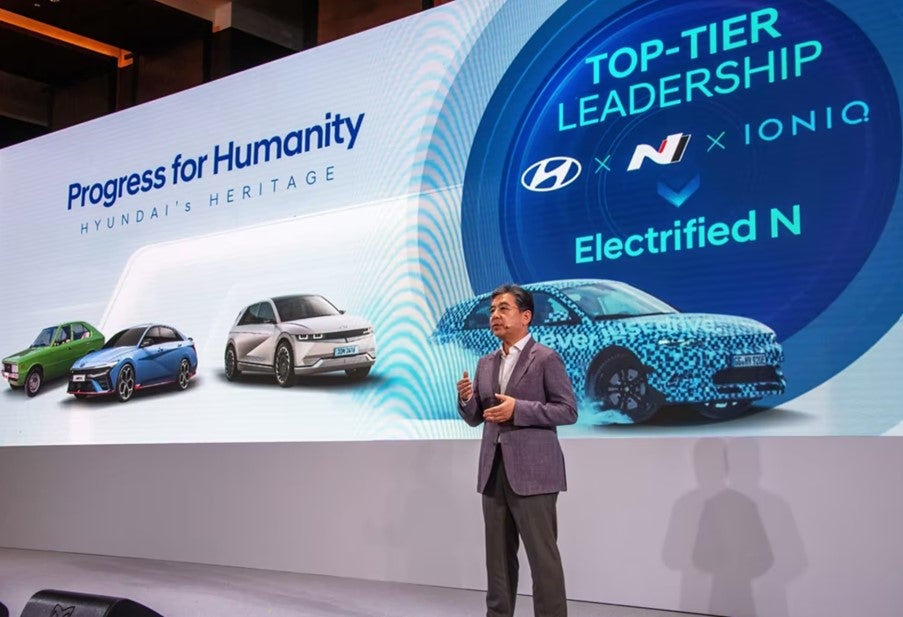
Hyundai Motor has announced it wants to accelerate its EV plans, investing $85bn (109.4 trillion won) over the next decade.
The news was shared during its 2023 ‘CEO Investor Day’ in Seoul.

Discover B2B Marketing That Performs
Combine business intelligence and editorial excellence to reach engaged professionals across 36 leading media platforms.
Almost $28bn (35.8 trillion won) will go toward electrification, including $7.4 bn (9.5 trillion won) for battery development. It plans to introduce lithium-ion-phosphate (LFP) batteries “for the first time” in 2025.
The rest will go towards the development of next-generation modular architecture for EVs and EV production capacity.
Hyundai also wants to increase its annual EV sales goal to two million units by 2030.
Hyundai’s first dedicated EV factory, the Hyundai Motor Group Metaplant America (HMGMA) in Georgia, US, is under construction with a targeted start of production (SOP) in the second half of 2024. It will have an annual production capacity of 300,000 vehicles to meet the demand for EVs in North America.
New EV platform – IMA
Hyundai Motor Group President and CEO Chang laid out the ‘Hyundai Motor Way’ roadmap for success in the electrification era.
Chang said the second-generation dedicated EV platform, under the new Integrated Modular Architecture (IMA), will replace its Electric-Global Modular Platform (E-GMP) going forward. The next-generation platform will be used on 13 new dedicated EV models from Hyundai Motor Group’s automotive brands Hyundai, Kia and Genesis through 2030. With IMA, the company expects to standardize modules and parts between the models to further expand economies of scale and significantly reduce EV development complexity and costs.
The vehicle development system implemented by the IMA represents a significant advancement compared to the current system, enabling maximum cost reduction through economies of scale. In the existing system, auto parts can only be shared among vehicles that share the same platform. However, with the IMA development system, over 80 common modules can be utilized across different segments, irrespective of vehicle type, allowing for versatile combinations. This breakthrough allows for greater flexibility and efficiency in the development process, paving the way for significant cost savings.
In the second-generation platform, the scope of vehicle development extends beyond the mid-sized SUVs covered by the current E-GMP system. Hyundai says it encompasses nearly all vehicle classes, ranging from small and large SUVs to pickup trucks, along with the flagship models of the Genesis brand.






